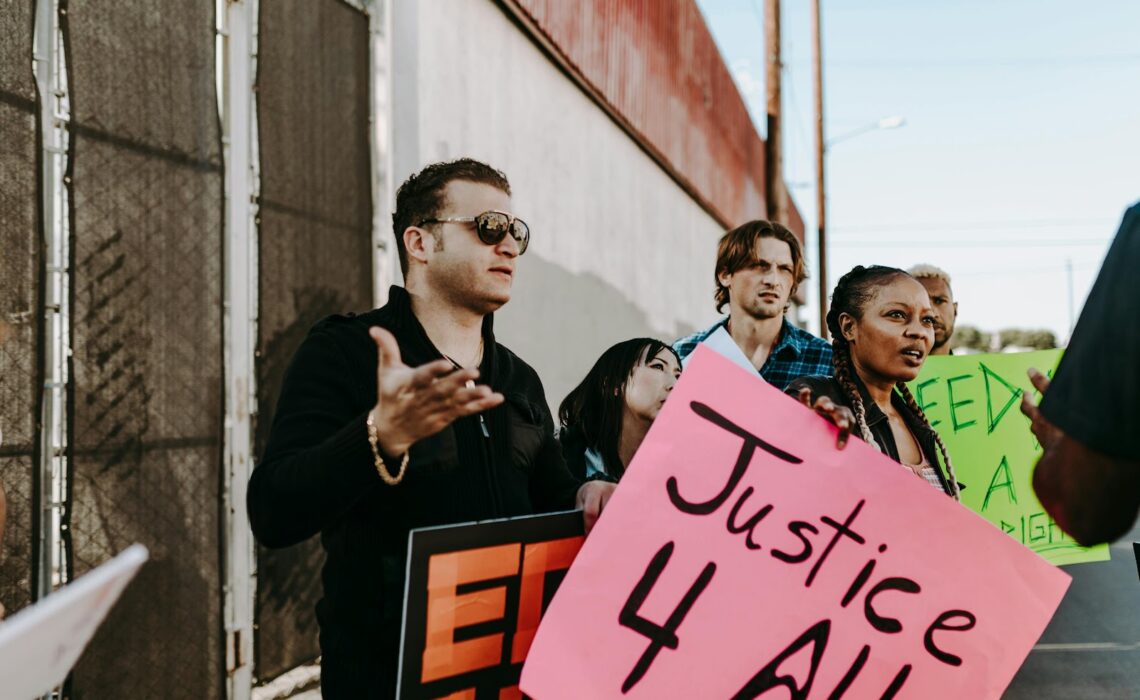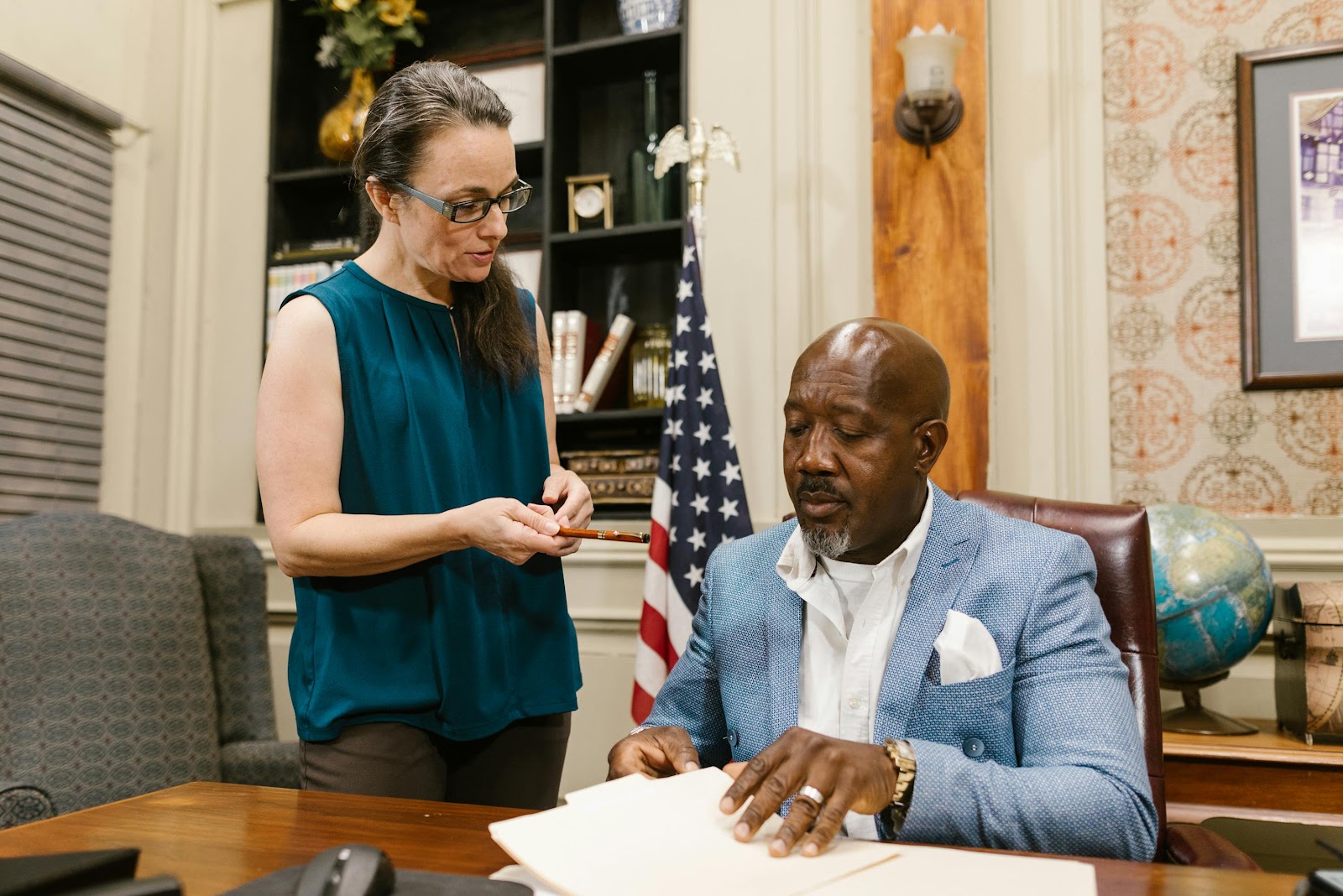
For those who are Deaf or hard of hearing in particular, the relationship between the criminal justice system and disability rights is a critical area of concern.
Over time, the legal environment of these communities has changed dramatically to address the particular difficulties they encounter.
To ensure equality and justice, it is crucial to comprehend the rights and protections provided to Deaf people within the criminal justice system.
The Legal Framework
The rights of people with disabilities are protected by several laws and regulations in many nations, including the US.
One important piece of legislation that forbids discrimination based on disability in all spheres of public life, including the legal system and law enforcement, is the Americans with Disabilities Act (ADA).
Effective communication must be available to Deaf people, according to the ADA.
This covers the use of interpreters in court cases, police encounters, and other contacts with the criminal justice system.
Such access is required by law to guarantee that Deaf people can fully comprehend and engage in legal proceedings; it is not just a courtesy.
The significance of accessible communication and services for children with disabilities, including Deaf children, is further emphasized by the Individuals with Disabilities Education Act (IDEA).
This law guarantees that they receive the proper educational assistance, which carries over into legal situations when they engage with the legal system.
Beyond educational institutions, the protection of rights aims to guarantee that Deaf people receive fair and equal treatment at all levels of law enforcement and legal proceedings.
Challenges Faced by Deaf Individuals in the Criminal Justice System
Even with these legal safeguards, Deaf people frequently face many obstacles in the criminal justice system.
The absence of trained interpreters during crucial events like arrests, interrogations, and trials is one of the main problems.
Serious repercussions, such as erroneous convictions or insufficient legal counsel, can result from poor communication.
Communication may break down because police officers and legal experts do not always understand the need to make the right accommodations.
Furthermore, law enforcement officers frequently lack knowledge and training about the unique needs of Deaf people.
This may lead to circumstances in which Deaf people are not given the chance to effectively share their perspectives.
For example, the lack of an interpreter during a police interrogation may make it difficult for a Deaf person to comprehend the charges against them, their rights, or the repercussions of their circumstances.
This knowledge gap may result in misunderstandings that significantly affect how cases turn out.
Additionally, stereotypes about Deaf people can occasionally be reinforced by the culture of law enforcement organizations.
Biases and stereotypes may affect how officers view Deaf people, which could have an impact on how they are treated when they interact with the police.
To foster a more welcoming and compassionate atmosphere within the criminal justice system, this emphasizes the need for continual education and training.
The Role of Advocacy
To address the rights and protections of Deaf people within the criminal justice system, advocacy is essential.
Many organizations are committed to promoting policy changes that improve access to justice and increase public awareness of the difficulties faced by the Deaf community.
These groups put forth a lot of effort to inform the public, legal professionals, and law enforcement officers about the value of clear communication and the rights of Deaf people.
Additionally, advocates frequently work to strengthen protections for Deaf people through legislation.
These groups work to guarantee that all personnel in the criminal justice system are prepared to adequately address the needs of Deaf people by advocating for more thorough training programs for law enforcement and legal professionals.
Efforts to encourage the use of technology, like automated captioning and video relay services, which can improve communication accessibility during court proceedings, are also included in advocacy.
Improving Accessibility in the Criminal Justice System
There are various ways to increase accessibility to establish a more fair criminal justice system for Deaf people.
Law enforcement organizations must, first and foremost, give top priority to employing certified interpreters who have received training in legal jargon and protocols.
This will guarantee that Deaf people can interact with law enforcement and the legal system efficiently.
A more inclusive atmosphere can also be promoted by requiring law enforcement officers to complete training courses on disability awareness.
These courses ought to address the value of clear communication, Deaf people’s rights, and how to collaborate with interpreters.
The possibility of misunderstandings and miscommunications can be greatly decreased by providing officers with the information and resources they need to interact with Deaf people courteously and appropriately.
Enhancing accessibility can also be greatly aided by technology.
Deaf people and law enforcement can communicate more easily if video conferencing systems, real-time captioning, and other assistive technologies are integrated.
In addition to improving accessibility, this encourages accountability and openness in the criminal justice system.
The Importance of Legal Representation

Photo by RDNE Stock project
Access to qualified legal counsel is another essential component of guaranteeing the rights and safeguards of Deaf people in the criminal justice system.
Deaf people need lawyers who are willing to effectively fight for their rights and who are aware of their particular needs.
Attorneys should be aware of the difficulties Deaf clients encounter and be ready to use resources such as interpreters to help them communicate.
The results of cases involving Deaf people can be significantly impacted by having a strong legal representation.
Lawyers can promote suitable accommodations and guarantee that their clients are treated fairly if they are knowledgeable about the particular legal protections available to Deaf people.
This emphasizes how crucial it is to create a legal network that values accessibility and inclusivity for all of its clients.
Conclusion
Building a just and equitable society requires an understanding of the rights and protections afforded to Deaf people within the criminal justice system.
Even though there are legal frameworks in place to protect these rights, there are still many obstacles in the way of implementing efficient communication and granting access to justice.
The use of technology, education, and advocacy are essential elements in creating a more welcoming atmosphere.
We can get closer to real equality and justice for all if we all work together to enhance the experiences of Deaf people in the criminal justice system.
For those seeking additional support, Unspoken Language Services offers interpreting services to help bridge the communication gap between the deaf and hearing communities.
Thumbnail Photo Credit to:Photo by RDNE Stock project

